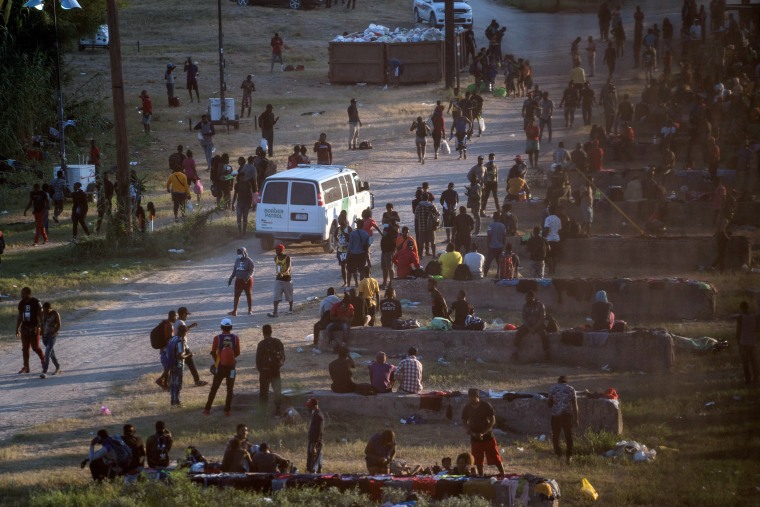WASHINGTON — More than 10,000 migrants, most of them Haitian, are packed under an overpass bridge in Del Rio, Texas, as U.S. border agents struggle to keep up with the surge in the area, according to two senior Department of Homeland Security officials.
Many of the Haitian migrants have not come directly from the island nation to the U.S., but rather have been living in South America and have been brought to Del Rio along a common smuggling route used by a Mexican cartel, the officials said.
The numbers under the bridge have ballooned over the past 48 hours, growing from around 5,000 on Wednesday and are expected to rise above 11,000 on Friday, they said.
Migrants arriving at the makeshift processing center under the bridge are given emergency supplies like water and infant formula and are processed before being taken to a Border Patrol station or Immigration and Customs Enforcement custody.
Customs and Border Protection does not test migrants in its custody for Covid unless they show symptoms.
In August, at the same bridge in Del Rio, NBC News asked Raul Ortiz, then deputy chief of CBP, why it doesn't test migrants. He said that non-governmental organizations test migrants when they leave CBP custody because, “As you can see, we’re already overwhelmed here.” The size of the crowd under the bridge was then about 100.

The Biden administration granted Temporary Protected Status to Haitians already living in the U.S. in May, due to natural disasters and political unrest in the country. But the order does not protect new arrivals. In fact, ICE has begun deporting Haitians back to their country, angering advocates who say more should be given a chance at asylum in the United States due to the country’s upheaval.
